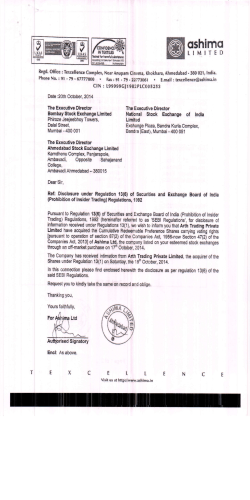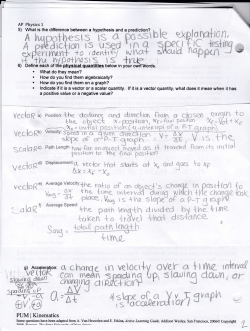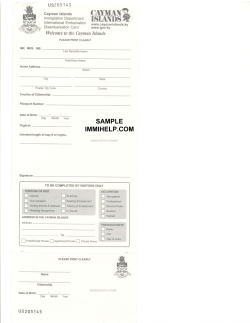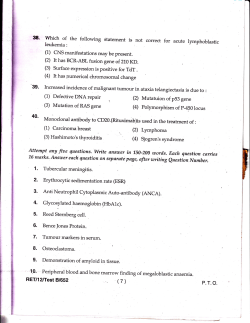
- CareerIndia
::::*, 6lllll
-)--i
Series : OSR/I
Ef{-gRilsr s.5q-YB
+ni.
T{sf,q[qfuri
Roll No.
r
Candidates must write the Code on
the title page of the answer-book.
o
o
o
.
o
gwr qiq ot1i fu,gs y{Er-rr { Etffi yB 10 + t qraflq* t
eFt-rrt { EIki EFr ft1 efu tqq rtq +tsqq{ *t un err-gk+r *.{e-y*q{ ftri
gtr-{t drq w i{ fugs nsl-rr ii tz ser t
gFt an gtrfrq{r vgsq.r* it qrd, ggq qr Fqiq. wErq ftTd r
lFrrqr
E{tvrt-q,tdr qF+ +fuq 15 fu{etnrgur-{rfEqrrrqrt rsw-q* orfl*awrYqk{ it to.ts vQ
fl+.qr Entn I 10.15 Tq t 10.30 qQ ro e'n **e rnEr-qr si qf,t eir ge erqRr + drtq A
ffir-9ftil+,r q{ stt Tff rrT fddr}
r
r
r
I
o
o
o
o
c
Please check that this question paper contains 10 printed pages + 1 Map.
Code number given on the right hand side of the questioh paper should be written on the
title page of the answer-book by the candidate.
Please check that this question paper contains 17 questions.
Please write down the Serial Number of the question before attempting it.
15 minutes time has been allotted to read this question paper. The question paper will be
distributed at 10.15 a.m. From 10.15 a.m. to 10.30 a.m., the students will read the
question paper only and will not write any answer on the answer-book during this period.
fuiffrd HrN : 3
EfugRT
HISTORY
titl
Timeallowed:3
t atfqodq eiq : 8o
hoursJ
[MaximumMarl<s:80
qrqrqfrfu.
(i)
(it
(iit)
lrrt?wit
dtut t
#rar{
r
fcnrf,riC
aidfufu
frd?q't rsA6yw*eir,r+r#v/qd
i
t
aiqt qrd,wai #r.n @v€ zf,- nw t I s) i0 flql
efiiE.w.l att aftq r
qfq €ji6f qri y{it #rar @r€ Er- er{wr t I IV, yw (i. I I u) 100 ?tqf
aF?.d+ atfdq r aog-q* a'?flT-ru Ts arqtfayw* t
Et
(iv) wiiolvtdwif#atn6e"e-Il tqri. tz qlrt:,
(v) wcqdtdvridTrwkitw
awTfrnt
r
1
{rqid atft$n6?dltqrhq r
giafwfu) (w4 y{ri. 14, ls, t6)
(vi) qHiwwfir-grfrfirqarEiflaaitfu@ocq
6tnll
s00
t qfu6
wi.
tz.t rnrtz.zl
r
IP.T.O.
i
Answer all the questions. Some questionts
General Instructions
(t)
(ii)
(iii)
indicated against each question.
Answer to questions carrying 2 marlcs (Part - A, 1 to 3) should not exceed 30
words each.
Answer to questions carrying 5 marks (Part - B, Section - I to lV,'Question
Nos. 4 - 11) should not exceed 100 words each. P
based
(iv)
(v)
(vt)
have internal choice. Marl<s are
question.
.
Answer to questions carrying 10 marla (Pafi C, Questions 12 and 13) should not
exceed 5A0 words each.
Part D questions are based on three sources. (Internal Choice)
(Part D, questions 14, 15' 16)
Attach the map with the answer scripts (Part E questions 17.1 and 17.2 ).
EIUit- if'
PART _ A
Answer all the questions given below
l.
:
qt{qrsrqqft q{lrqfqmqrer*16=iqtffisdpTtsttF+q+ifqq
t
2
Mention any two features of the administration system of the Mauryan Empire.
t
vtdrd ils oTrfr-sTril {%tcn\r*.$ ffisd slittr{ ffi ,r{n r' +ttt sqt{ur {&q
'By the eleventh century Sufism evolved into a well developed movement.' Give any
two examples.
2.'qn6ET
3.
t fi silqFdfrm s{isr i
fEqr r +ttqi qnq {frq 1
srifirfi eqi
qndlq wert or qlrfud
A?TK
2
s.ri q{ EIRT q-a q}
2
Why was the colonial government keen on mapping of lndian cities from the early
years ? Give any two reasons.
Etult-Et
PART
-
B
sqlq[rr- I
-I
SECTION
trrrkfur{tm6q}qrit*.sfifefiqq:
Answer any two of the following questions
4. ffi
:
* erq+,f,r riai$ eq{ur loq rfin fiflts{ st stk {*d qrfr t r tq6
I
5x2=10
sql6{uii
Enrgfu+1tqq
How did architectural features of Mohenjodaro indicate planning ? Support with
suitable examples.
6rfln
I
'i
s
5.
+€kdr qil-{ t r EM
q{f+qrfuqrtsqdtf5qTqnqftqrc+r"1kq
gafw.rtgerf
qdltlrftT nft
aa *er *q\fti*.,gsq
i rrarrnro o'r fu{dqq *.rA
I
l+4:5
Who composed the original story of Mahabharata in oral form ? Explain any four
elements considered by the historians while analyzingthe Mahabharata.
6.
i
srt$ enq<ur slt{ {eqi *} ,rcs frql t" {s qqr rR qEFM srofr g, Gfl-fi rr{ gqst
flycTrnii +i sqelfttg
"Buddha laid stress on right conduct and values." ln the light of the above message,
'gm
I
s
explainhis teachings on life.
wlum- tr
SECTION - II
firEftfudsrFii{tffigdr$rstr{frftsq:
Answer any one of the following questions
7. 'dfil
nq
Etudfrq
i
r
kffi+rt
Hrqrnl
5x
t:5
:
5 q56+* bqr 6i 'fqqq EF'[ rsqq' dr {f,r fr t
r" ;qtqr{qd
s
"Domingo Paes has called the Mahanavami Dibba of Vijayanagara Empire as 'The
Hous'e of Victory'." Justify.
8. M
*tv*cqT qffii *E rffirfl ti si,rcqrfuii ++++
+l +qsq qr qui-r +1fw r
s
Describe the life led by the forest dwellers during the Mughal era in 16th-17'h centuries.
oqwr-m
SECTION _
ffi?ftns*if
{tffigtrs,sff{fleq:
Answer any one of the following questions
III
5x
t:5
:
2.
efurvr+Rstr6rtsittr{fflirror*.{i+1ilff,.itstsilFtqqrffi+.q{qsifuq
10.
1s57
I
s
Critically examine the policies adopted by the Britishers to control Paharias.
+' qtflr
deqr
frldr sGrR
i
erqq
+ilrq*.Ert +t flq.s wsr
{rrT
#S z wcrqit qkd Hs
s
How did British dispossess Taluqdars of Awadh during 1857 ? Explain with examples.
er$nt- IV
SECTION _ IV
1{=t emunftart;f (Value Based
11.
(tl.l)
(r1.2)
"led vfr
{ eilqtrafrro yrtri i
ort{dt
Question)
S
x
I
:5
+ foq qq wNR rqr{ fsq t" 6t$ d
2+3=5
sqf6{uT{fqq |
"The colonial cities provided new opportunities for women during the lgth
cenfu4/." Give two examples.
ftFtT
fr;qr
+{ Tdii si
EITGIr 61fr{q,
Hf+ qknrcTt +t qvrm ffiri + fuq 6g66d
r
Explain any three values which encouraged women for their empowerment.
6llut
3
tPiT.O.
Elug-rt
PART _ C
Ctrrrfug{=0
tz.
reqT-rrqT
l0'x2:20
(Long Answer Questions)
qrcqr +1i"rq t
ui6ii q ryro urfi"r qndq sqrq it qqr{rd 6i Tfir6r +t
10
qq€fi
r
er*cr i Erq-nffi iFT-frq aqr qrfiroqg(I"it tt wq{rd f*s u-enn ffirg ret wqqitEq
l6th Explain the role of Panchayats in the Mughal rural Indian society during
t
17th
centuries.
OR
and
Explain how Akbar maintained harmonious relations with different ethnic
religious communities.
13.
LJ'
.TtEqK +Etd61-q
;.fr
t
Hq IftfrS oi nq tfiiur
Tfr*t o,lq'i{ dfuq
I
*
qrq +E-q'{
iqr qror t
3lqfi
qrro *.ftr+rtq-{ *-ore it enq iltrit +-qt{q' m${dt e'r quiq qifuq
r'
ffir
{mq d
10
I
..In the history of nationalism Gandhiji is often identified with the making of a nation'"
Describe his role in the freedom struggle of India'
OR
the period of partition
Describe the harrowing experiences of ordinary people during
of India.
Errg-q
. PART_D
1a1$r ururRa lnFD (Passage
14. Grqftfrrc al1ut(t
d
8x
Based Questions)
3:24
Enq$oqftqaqr ss*' wn { frqqd *'r*rftrfqg'
3+3+2:8
n$frJq+t rsrfiH
wm rsrfa+r (o ei{t t
qJ.l-drql
tqq 3€H 3{qi ft + ilnA
s-++r +tt qfdffi rfi qr I srid {uil 3{Y{
vIF ry^gb +
".*
I a q{qlel gsq t, {rg ('{-O
er<
* qqr eri fircr
froqr it t*qrqr
ig-*+strd aqo a qtm
fr-r" +on*t.
sfq rnrii *'qrdr r s+hqfinwdr {q{r {-+-gqi'
ssilr r t o-wn t .rt Eqt, a
+tq fti'ri ; { qrffidr +frq t{qqH sqrnl +t
fr-fl6Fil .+. +,g,tt +
c"lr_to, tH (qqt +indD eftrqq Qq-iE *gcu
;iffir.fr t
'q€
:
*
*r.t
t
t
t* t
ra.riqt
**
t
*ii
rn+r rqr_ier,
t
t
t "trfrBt
*
1
(t4.2)rfd{{{drqrq{slT*.ffifr{{"ilqrsdo*1kq r
$
ffi t
t
iln rqfiId
q3q erg
+-{rqfi*{
qqrE d
Stst.tI
6uul
4
qd ,r* tqgffi t r rq€qilkq
r
1+2=3
t,0.,)ooo*-tfi*ffiffirq{rfin*'q-6-ee'r3attoq)ikq
(14.3)NT
t
3
t
2
IHEr=r
z16 Tfr{uT
{iqffi Ttrrrrf, +
fu1u1*;g61X'
g$r
qrMl (wrq oil{ro t t CIfu 66h-q qiw + etq gq {ffi sr
3+2+3=g
* gd t
sfu qtw s{+ Eisrq w+ e} r qlo t5ny ffia ei ero. 3-+*
ft-6rs{ qr enfrr W.... tqrq qig dr orsrqfuq. gg *. qK ganq rqr
*t{e..... Tf{Y
qTr qtg EftndTgr +
q+, Edffu e*rt rrq-Sqr
qfr e+r+ s{Frcfu
*.qqrsriwf
q6
silfl*rsr
on
m-q}
t
r
dt-dt {FrSqR c} gq EkrTg{ + rrrrk*. qisit *
66q
sYrqi +5-.6re-d orfrrfi+,q
olt{Fffqft
t
r
qq
er-f,
\-\\\.
$ *kt i[ QE:, gdqr +i +go tqi gt I T{ eTql fuar *'qrs rrqr eil'r +frr, .t Tqfr, sTtuiilr
*'*nur eTlrsi frfdrs{ .K H or erftr+n aaT r{r aeifu'qa eTrrsi qroil d .r.n r qk qisq qtg
t
qe futrca qrn E{A
qr,ti eilr rq
aen
(t+,t)Sdtr+
i flTdr t
(14.2)srf-+(
{
t
sr*.
n}
uqlt 5{ gs
qrE
Br+
$,
qtd et{ lm.{ qqt.d gs tq*. {qfu
nq * r{trfrr+n t +{qf, E}ffi{ {qR ti u* qq* oil't}
fuflreif si fl*,s so,r o{Frqffi t*qr
+
ffi
z
sssEblHq
r,,
|
3
F*q sifuq |
*.qfr qr+ fip{Frfidr wii ark +t r
nqr q+i + fuq gflrq rq
1r+.:yrkrrgr+{rrrirdf
+ s{Frfirfr Ei
qFrEUs
sr
2
3
Read the following extracts carefully and answer the questions that follows :
Samudragupta
In praise of Samudragupta
This is an excerpt from the Prayaga Prashasti :
He was without an antagonist on earth; he, by the overflowing of the multitude of
(his) many good qualities adorned by hundreds of good actions, has wiped off the
fame of other kings with the soles of (his) feet; (he is) Purusha (the Supreme Being),
being the cause of the prosperity of the good and the destruction of the bad (he is)
incomprehensible; (he is) one whose tender heart can be captured only by devotion
and humility; (he is) possessed of compassion; (he is) the giver of many hundredthousands of cows; (his) mind has received ceremonial initiation for the uplift of the
miserable, the poor, the forlorn and the suffering; (he is) resplendent and embodied
kindness to mankind; (he is) equal to (the gods) Kubera
(he god of wealth), varuna
(the god of the ocean), Indra (the god of rains) and yama (the god of death)...
(14.1) Who wrote the above Prashasti ? State the importance of Prashasti.
(14.2) Mention any three qualities of the ruler described in the excerpt
(14.3) How far are these values, shown by the rulers, relevant in the contemporary
society ? Explain.
OR
6UU1
5
lP.T,O.
Why kinfolk quarreled
This is an excerpt from the ,q.di parvan lliterally, the Jirst section) of t!" Sanskrit
conflicts arose amongst th9 Kauravas and Pandavas :
Mahabharata, describing why
"qor*
of Dhritarashtra, and ttre Pandavas ... were their
The Kauravu. *"r.-itrE...
ascended the throne
cousins. Since Dhritarashtru du, blind, his younger brother Pandu
became
Dhritarashtra
Pandu,
of Hastinapura ... However, after the premature death of
the
together'
grew
up
king, as the royal princes were still very y9u1g. At^fu princes
they
.iiiZlr. of Hastinapura began to express-theiipreference for the Pandavas,tleforeldest
Duryodhanq
*.i" *or" capablelnd viiuous than the Kauravas. This made
"You yourself did not
said;
3"ut,oor.-g" approached his father and
If the Pandava
"iirr.-ru.rrru.,
receive the throne, uftfrougt it ieil to you, because of-your defect'
pu"du, his son will surely inherit it in tum, and so will his
receives the patrimony t'"ri
from the royal succession
son, and his. We ourselves with our sons shall be extluded
earth !"
the
of
*a'u"ro*e of slight regard in the eyes of the world, lord
of Dyryg{hana that he elpressed to his father
11+ il Explain uto"t ihe worries
in the excerpt'
itq.Z\ Mention the criteria for becoming king as suggested
?
for the Pandavas
preference
t[6ir
Hastinapir
irrl .iiir""r of
_
ti;jj iilffi;
kd, H
s.rdr
t
"*[r".t
ilffirdt{ rvii it gffffit
ffi
qrq
t qt
toqr rrqr
err, 6'T
eoiT
:
{q {ffTr w FrR
2+3+3=8
qrmr Yr6{ t... vrrr + qRi 3nr e-+
ffi q$ qir it i1dr u-s wa6*r
t, qlqrc qft q)Er$ r{-rd 6rq (g{'aq FryI 20 gq +
re"{r qrtr{t +'
",=n**) t, "n w*.ri-d{ {rh +qd.fl iln HRqlEiti[ *'oeT t qaft
q{frri
eiq{;;qnfr, EprqR, qrsq, qqtqr€{ HeIr itdifr +rq oTri
+ {q-6 + fuq $isR'F ei gq 8.... qr+{ +'ffi qrrr d Tgs{R dqr
q-+
* 5ao vrE{ + r'o t xst ek ro 3na-qrtr 5 vr*t if fig-Effi
+t 3t{ qm.t t 3fl{ {€T fiqgtfdt swqq t renr* eiq{ elrar
t qi
sct6 sqft qFr fi t I {€-it w
t qrtr{ E'.r frtrf,r qH q.eT{ t q-qr t yr6{
q'i qt{rt t I gs
+ srgr{€ ER t ffi ({-flrf,t
{qi-a' qRr-sRr q-fr
frt *, t, st{ flit t qfi{ffirqr s{t f6R'l-d t qig* rcrA' + +d{
1
YlE-r
r
qrrm
tt W qeit
q,r e'hqr
t...
w@rrdq{q5ffit
wnrtffit{Sffii*'oq{
'i€ s{ri'ri t ofu fu{ sni
rKrid(Tfi t"-4 ftffi su
t +flq t r rE'no it drtq,r
qid nert Eiqrft gon St 5o
Brnq qri t ,rY{ x;€ E ft
;-*ffiflSr{&f
qdatffi+Ad*qrqlrrotsr
qYssiiiiMrcit
I
(15.1){e-qqniffi+tr'oe}wr*.sqiiuiiq"r{fuqrt
6uu1
i
6
r
ffir *i en*rror t qqr+ *'ftqtsq.rq, sqrril cnr -d"
(1s.3)gq q{m yr6{ e+ enEfurfu H,rdrc{t t Bif q$Trfqil g€{r ?
(ts.2) l4qT rr+ it
s1frq
|
3
3
Ots[ET
rrqr qt{qrqrft
i
fuw-{ttr + s{S vfus vn+ro Eqt+ {rq GrRFrsrFr $os-2s) vnwr+or
gTTffirs{ ilrotq{ qrqr ii \t*.Eid ftrd I qrqrfuqt + fuqq tf Bni-fuqr
fr6rq ii
3+3+2=8
\rs {lcIT si 3{r} Tq{rndf *i glra qi6q olY{ qriqq *} qs r*.n fasrfuc *'m qrtrq
fu'dgr, 6IFHI, Fii, d<t, qkft mn .rq *q.ri mr qA nk q{ onirkT t+qr qr s+.... ss Fiq
qr r*,n *'mnor s{+tvr ii rmr rs-dr
onr qrlwfue+ futvft {ttd$t k+ EtrH},
+t ffi-*irfr tq*rd et qr {r+....
tqit }.qpffif, qi Erftrqi sil{ srd qH er snqrd
q.{i 6ttq da*.ii gfrrsr, HH. tq;t aqr gfof,
T{rh"i EtqFfr t+-{ €{qi qpT riqmqrmr
irt6q I tqr *.r+ w t a+Eq o'$ qt EETI S{qq} n-+-raT qg+i'ft
w
t
:
+
ffi
t
r
{qr *'e+rqrfrEit +t qrqr ftiHq r
1ts.z;pqQEwi+*Erftsi €rrivqsif tqqri*frqfu'sr+nrtn+1r
(1s.3){rcTr enr erqi tvr st qfifeftrqt 6t
S{R+ *leqfuTrqBq"it +t arTeqr ftifuq
(15.1)Esriq
{riT ERr E€dnsd
3
3
t
2
#t+$it:*;
Here is an excerpt from Ibn Battuta's account of Delhi, often spelt as Dehli in texts of
the period :
The city of Dehli oovers a wide area and has a large population ...
The_ rampart round the city is without parallel. T[e Lr6adth of its
wall is eleven cubits; and inside it are houses for the night sentry
and. gatekeepers. Inside the ramparts, there are store-h6uses for
storing . edibles, mag_azines, ammunition, ballistas and siege
machines. The grains that are stored (in these ramparts) can last 5r
.a long time, withou! r_otting... In the interior of t6e rampart,
horseman as well as lnfantryrnen move from one end of the city to
3rotlr.r. The rampart is pierced through by windows which open on
the.side of the city, and it is through tLese windows that light enters
inside..The l.ower part of the rampirt is built of stone; the ulper part
of bricks. It has many towgrq close to one another. There are tvr6nty
gielt gates in this city which are called darvraza, and of these, thl
Budaun darwaza is the greatest; inside the Mandwi darc,,azatheie is
An arch in
Tughlakabad, Delhi
a grain market; adjacent
to the Gul darwaza there
is an orchard ... It (the
city of Dehli) has a fine
cemetery in which graves
have domes over them,
and those that do not
have a dome, have an
arch,
for
sure.
In
the
sow
flowers such as tuberose,
jasmine, wild rose, etc.;
cemetery they
Part of the fortification wall of the settlement
and flowers blossom there in all seasons.
6uU1
7
lP.T.O.
(15.1) Why has Ibn Battuta described Delhi as a vast city ?
(15.2) Mention the measures taken to protect Delhi from the invasion during 14th
centurY.
(15.3) Why was Ibn Battuta
impressed with the architectural features of the city ?
ExPlain.
OR
orfif rit*:ittr;us
avanaqara, composed
ruler or
Krishnadeva Raya (rured, r
f.rj
traders he wrote :
About
a work on stateciaftin Telugu known as the AmuHamalyada.
that
A king should improve the f,arbours of his country and so encourage its commerce
are freely
horses, elephanti precious gems, sandalwood, pearls dnd other articles
on
country
his
imported ... u" stroutd uo*gr that the foreign sailors who land in
a suitable manner' " '
account of storms, illness and exhaustion are looked after in
and good horses
Make the merchants of distant foreign countries who import elephants
presents and allowing
be attached to yourself by providin! them with daily audience,
decent profits. ihen those articles will never go to your enemies.
(15.1) Explain the responsibilities of king mentioned by Krishnadeva Raya'
had Krishnadeva Raya protected articles from going to his
(15.2) In wfat ways
enemies ?
(15.3) Explain the measures
taken by the king
to improve the conditions of his
country.
wnqnqxri'*ffi
16..tq-d
q; 'lftq $fifrqq' ;T116 {qrqR q:r
efu qrpr qftf6 qms tTrafufird frdt 6 E{ 1876
t.{,o i6qr rrqr Gfr
q'q-{ ft1 fiHttd
s.$ T-i
dEfr
dt ut-drft
..a "t{
,firi;ft **"it q{ T6 qut + frq *qS
f -F 1w
dra,
q-s
a
"{ril''
3{ftr6rfr 3il
{6r .ir *"fu* i* qqq {6n 3-{* 3{ri +i qfir t B t -, fiF{ \'6
qt{
t Fts[t
q=lt5{ .,Iqi aqulnr.* + et qA t ofu 3rt s{h;EUrTd 3fu €r'4 ffirn{
qrtr
*'qrq 6E sc+rfr slftrsrt
at r qk tS
*-*
6G w
t*6 t qldr tni {ctfi eTq{RFii dt $r+i sd{ qilqr iA t 3Tt{
T{ rfi-.ii *i .n
**"
;iE.
t "ri
ffi
ffi
t
.**
**d ;
il
"*
sTqrnfrwq{6frAmit-t*crdqrfrt r'
(16.1)tqdt
fr
5-trtrqp'
3+3*2:8
1
t zqErdrcit wts-{ ilrdt+iilr tsqr, quir dtw
qrqr
ei&q t
ii;.r;t d il{r sTqi eTrq *t qqr} +fuqf6qrrqsqp1 +t
ii;.;,t"d i aqqrdr.,it *t qai *r qu edi 6-qt r sq+Tqq |
qsrat
6.Ert
T(tFqiSa E-{T
AIFi^
Ei
E='
I qpd q;r {q'5
tq
t
"il q't rq il{r'fr €F'{lkdFt 'Wft*.t ryuq{'
t{r ftrd t r wsr d;a.,
..sffi qoi .arffii -* 6ii"t
*t *r t" tf+ s+ s6r t t*. mne d-qr qr Tfidr t ts'
ori qo*dt {q.{
a}
eryqa1
6r {6 3t{ qfu
.iu*
116
t t*rq *oaikorierrii
d qiE 6qgr Wr F!,6* S
t *q g" t S' *Eis.dr
* it oqT* t r err+rk+tfu Eqnr miq Fifim t r elmciesns
q|q* €rfirr. {n-dr t r
*. dle?i=ji i $ur *1 qlfr
*-sr drn, ffi **-q1-6 Affi dtft,
q-q Fnit S t{r t I q{E {6
d G-ffi ,tri*r n** t .fu..t t .-ga qli-{iq Hqt
fr$
6uU1
rq-{q.i*.ifi*d
iP16r qEft
3
3
2
{frw+n Ei snf,r t fu ern s+ {fr rre riloaiko q} raqr t d q qr} o-q e+ til*ixf +}
err$ vrw-{ra qt$ cga {fi{-fr qgtr r ii envr o.wr t 1m,'
oftro dq.aikotvr +t qr
erq ?tq,diidfi q"n* qr
{err ffiq ftt aq fu+';mm mri qrd ft1 r o} uoar t fu
aq s{rt +ffi{ $s tq
r wrarf,, fufr *ft q{fr +, oq r6i +S Ent vrd6m eqr(, T6 6qn- F+rit
$ srrypq * w1su sil{ s{*i
wsrti* qrlae r oc ?isiiT +'roii t r 16 g*r vqq *}
cFrqt
crir
t fs. Fs diF-d-d, lPlfi i+sd.r sT H6:rr erqr E}'II r sqn qs qrf, 6i tq voar t
qsfu Es rkrcr { 6rr+ '1frq;6ifa6' yrq $T F+qrd qtT fuqr t wif*. rrf ern fu'w *
Elrrrt{*. fr t t*. 6(r[u'Rrsur vq i[ T6 Trq.rcd fr ftkd Eldr t r vqrdq 5q q-+r*wo eir
ertqqtfr $qi +r rd'r Tfi H{rT EnEA E r tqt vmt +g,rqi{ qra t m-fi Vqrqr erTH frqr t
rqi qq rkTrrr it ?rt*tir si siildq rqf sl t r ek'dm,,fu +t fi q6T, sTrffi*.Fl}mti"* 61
t
ffi
ffi
t
rffi
r
t r el=q Frett *t es qrf, rR sTrqfr Ei vo-fr tfuvq trkTrcr { 6ri rnrr +}
rq qqri or drq qdf itT f*.qr t r zri tn Arrm til{r fr q-6{r t t+. {
oiddq unqa +t
\rr qrTrqdd
{qef*.{ eil{ T+ e[Rn t fo. qEfrr .nca $ {EncrElR * qu fr drn e*t *& tnra
\1+. sqnilqrfr nq *1 sT${T + qrri q{ rrd'n s*{ T* Wr kwrs t ftn \'+. ffl {ft gFrqr +i
w? cri q-r qc+r airn r
2+3+3:E
- al?qnwra6g aYt
wIIGtttK sT
trs i rkrrrr ii 'ail*aik+' wq o,r rdrr *it ftT t+qr r
(r 6.2) sr{ orf+E { fi ,€ tmm # *t W-W ffiu-deii +r sdo
qqer q{ffi fEqr r
(16.3)+66i flmq rsr6t
2
( r o. r )
+1tqq
3
I
3
A News Paper Report
The following report, titled 'The ryot and the moneylender', appeared in the Native
Opinion (6 June, 1876), and was quoted in Report of the Native Newspapers of
Bombay:
They (the ryots) first place spies on the boundaries of their villages to see if any
Government officers come, and to give timely'intimation of their arrival to the
offenders. They then assemble in a body and go to the houses of their creditors, and
demand from them a surrender of their bonds and other documents, and threaten them
in casb of refusal with assault and plunder. If any Government officer happens to
approach the villages where the above is taking place, the spies give intimation to the
offenders and the latter disperse in time.
(16.1)
(16.2)
(16.3)
Describe how ryots took control over the moneylenders.
Explain the measures taken by the ryots to save themselves.
Explain whyryots resorted to robbing the moneylenders.
OR
,\
I
'We are not just going to copyo
We say that it is our firm and solemn resolve to have an independent sovereign
republic. India is bound to be sovereign, it is bound to be independent and it is bound
to be a republic ... Now, some friends have raised the question : "Why have you not
put in the word 'democratic' here. ?" Well, I told them that it is conceivable, of course,
. that a republic may not be democratic but the whole of.pur past,is witness to this fact
that we stand.for democratic institutions. Obviously we are aiming at democracy and
nothing less than a democracy. What form of democracy, what shape it might take is
another matter. The democracies of the prgsent day, many of them in Europe and
elsewhere, have played a great part in the world's progress. Yet it may be doubtful if
those democracies may not have to change their shape somewhat before long if they
have to remain completely democratic. We are ncitrgoing just to.oopy, I hope, a certain
democratic procedure or an institution of a so-callod democratic country. We may
6uilt
IP.T.O.
improve upon it. In any event whatever system of government we may establish here
must fit in with the temper of our people and be acceptable to them. We stand for
democracy. It will be for this House to determine what shape to give to that democracy,
the fullest democracy, I hope. The House will notice that in this Resolution, although we
have not used the word "democratic" because we thougtrt it is obvious that the word
'tepublic" contains that word and we did not want to use unnecessary words and
redundant words, but we have done something much more than using the word. We have
given the content of democracy in this Resolution and not only the content of democracy
but the content, if I may say so, of economic democracy in this Resolution. Others might
take objection to this Resolution on the ground that we have not said that it should be a
Socialist State. Well, I stand for Socialism and, I hope, India will stand for Socialism and
that India will go towards the Constitution of a Socialist State and I do believe that the
whole world will have to go that way.
- Constituent Assembly Debates (Cad), VoLI
(16.1) Explain whyNehru did not mention the word democratic in the resolution.
(16.2) Mention the three basic features of the Constitution given in the above
passage.
(16.3)
On what kind of socialism did Nehru give stress to ?
EIU<'_E
PART _ E
t7.
6rr<fuxrr+1
(17.1)
(MaP Question)
qnd +tqq gq {sr*k*.tur-urqlr* q{ firlrkfrsfr Ei sik-d ftifqq
qk 3-{harq
ffiqq:
Cs) qldrfr{r
'
(17
.2)
6e1 qfrqqi
$nrd + frq rrq sS {s$fr+- tqr-qnftH w qrfrq wiTdr {fiq + Tf€Wt+q
L,
2 eil{ 3
sitsdt*q'rqt red.rfirfrqilTrgT+'v&qrq3-{ilqfrqf,ir$Tf
tqrcTtq{fuft{q
(17.1)
(17.2)
1
3
On the Political outline map of India, locate and label the following
(a) Dholavira
O)
Lumbini
On the same outline map of kidia three places related to the lndian
National Movement have been marked as 1,2 and 3. Identify them and
write their correct names on the lines drawn near them.
61q66o qfi *Tfi EffiqrqflHrfffi +fdqqnfu ss:{ri.
(17.1) ffiqlksirdEsqrT{rerois'rsdq+ifqq t
*6.
(r7.2) qndq {rq1q s{iqtin t
Note:
:
17
*.p16q{t
Ss
ffi
:
2+3=5
I
qitqq
frq qtdwt errif *.r
only for the Visuatty Impaired Candidates in lieu of
qrqfrrd
The following questions are
the Map Question No. 17 :
(17.1) Mention any two mature Harappan sites.
(17.2) Mention names of any three important places related to Indian National Movement.
6uul
l0
2
3
s{qri. l7.l gi
17.2
+fdqqnfu{
Map for Q. No. 17.l and 17.2
qrrfr
7h,
q,,r
tqT-ln{fr T (rr+ftfr m)
Outline Map of India (PoHtical)
F
+
rE,
qrrtrc{r*c gliattr{*.Pm
tr
Centres / Places of Indian National Movement
a)
t)
rfr
=
U
i
I
I
,tr,
F
+
Etr
!)
L
C)
*
a
U
6u111
11
© Copyright 2026











